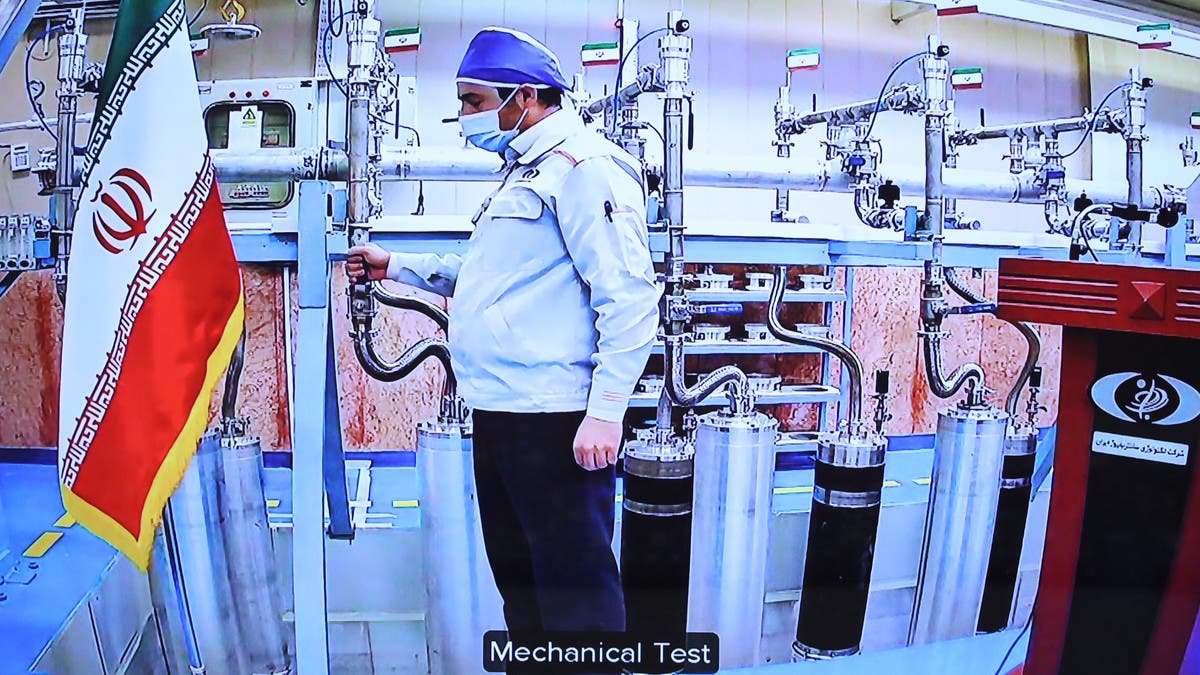Negotiations to resurrect the nuclear deal between Iran and world powers are moving toward a state of limbo, meaning the likely outcome of the new round of talks in Vienna could leave the accord neither quite alive nor categorically dead.
Diplomats reconvene Monday in the Austrian capital for an eighth round of negotiations meant to limit the Persian Gulf country’s nuclear activities in exchange for relief from US sanctions.
Deep divisions continue to plague the European Union-brokered talks, forcing diplomats to contemplate outcomes that fall short of fully reviving the landmark 2015 accord, according to officials with knowledge of the discussions.
While there’s no formal discussion of an interim deal, even leaving the accord in a state of limbo would require an implicit understanding among all sides not to escalate further. Iran took a big step in that direction when it said Dec. 25 it wouldn’t exceed 60% enrichment.
In the absence of a formal US return, it’ll be up to the European parties to decide whether to escalate or keep talks on life support until a new opportunity for diplomacy presents itself.
“The most important issue for us is to reach a point where Iran can sell its oil comfortably and without any restrictions and receive its money in foreign currency in its own bank accounts, Iran’s Foreign Minister Hossein Amirabdollahian said Monday, according to the semi-official ISNA news agency. “We should be able to fully reap the nuclear deal’s economic benefits.
For the latest headlines, follow our Google News channel online or via the app.
But European and US diplomats are increasingly skeptical they can offer the kind of sanctions relief Iran demands. The Islamic Republic has continued to dramatically increase its nuclear activities in the wake of the US decision to unilaterally exit the accord almost four years ago.
That’s resulted in a dwindling time horizon for diplomacy to prevent Iran from marshaling the resources necessary to build a nuclear weapon.
Following the last diplomatic round that adjourned Dec. 17, one European official who asked not to be identified in return for discussing the talks said the window of opportunity had shrunk to a matter of weeks.
A senior State Department official, similarly speaking on background, said that time was running out to revive the accord. Even some of Iran’s primary advocates in the talks, which include China and Russia, suggest the newest round might just have a month to succeed.
Iran says it has no intention of building warheads but concerns that it might covertly try to develop nuclear weapons drove the international diplomatic effort that culminated in the 2015 accord, known as the JCPOA, or Joint Comprehensive Plan of Action. Energy markets have been closely watching the talks for signs of whether the holder of the world’s No. 2 gas and No. 4 oil reserves might return to global markets.
Two Iranian envoys familiar with the talks, who also asked not to be identified in line with diplomatic rules, rejected European and US ultimatums limiting the time for diplomacy. While one official said Iran’s ready to negotiate as long as necessary to strike a deal, the other suggested the Gulf nation is looking at fall-back options in case the Vienna talks collapse.
One option could recast the format of negotiations, with Iran leaning more on Russian diplomats, or envoys from the United Arab Emirates, to carry messages to forestall escalation that has threatened to tip into armed conflict, said the latter official.
Former US intelligence officials wrote this month that the Biden administration should threaten to attack Iran’s nuclear infrastructure unless it acquiesces. Israel has similarly suggested it could bomb Iranian positions to prevent the country from manufacturing a nuclear weapon.
Tehran’s top nuclear official, Mohammad Eslami, signaled in a Dec. 25 interview with Russia’s RIA Novosti that his engineers won’t exceed levels of uranium enrichment required to make a nuclear weapon. That could send a key message for diplomats trying to extend the possibility for a peaceful resolution.
“There needs to be an understanding that Iran won’t increase their enrichment even further, said Tariq Rauf, the former non-proliferation policy chief at the International Atomic Energy Agency. “The Gulf states don’t want an attack on Iran because they know they will suffer as well. A military conflict in Iran wouldn’t be cost-free for the region.
But while leaving the JCPOA in limbo might forestall immediate escalation, it’s unlikely to stop pressure from mounting in the longer term. European negotiators will eventually face louder calls to send Iran back to the United Nations Security Council for sanctions rather than allow a zombie accord to continue limping along. That’s a move Tehran has warned could prompt it to leave the nuclear Non-Proliferation Treaty altogether.
“If Iran’s nuclear advancements continue apace, a point will come in the next two to three months when it becomes necessary to up the ante on coercive diplomacy, said Ali Vaez, who directs Iran analysis at the International Crisis Group. “US domestic politics will require a strong reaction. And since America has maxed out its leverage, the Europeans will have to do most of the heavy lifting.
Read more:
Iran says won't enrich uranium beyond 60 percent if nuclear talks fail
Iran nuclear talks to resume next week: EU chair
Lift sanctions to dispel concerns over Iran nuclear program, Tehran tells West

 World3 years ago
World3 years ago
 World3 years ago
World3 years ago
 Business1 year ago
Business1 year ago
 Entertainment7 years ago
Entertainment7 years ago
 World7 years ago
World7 years ago
 Entertainment7 years ago
Entertainment7 years ago






